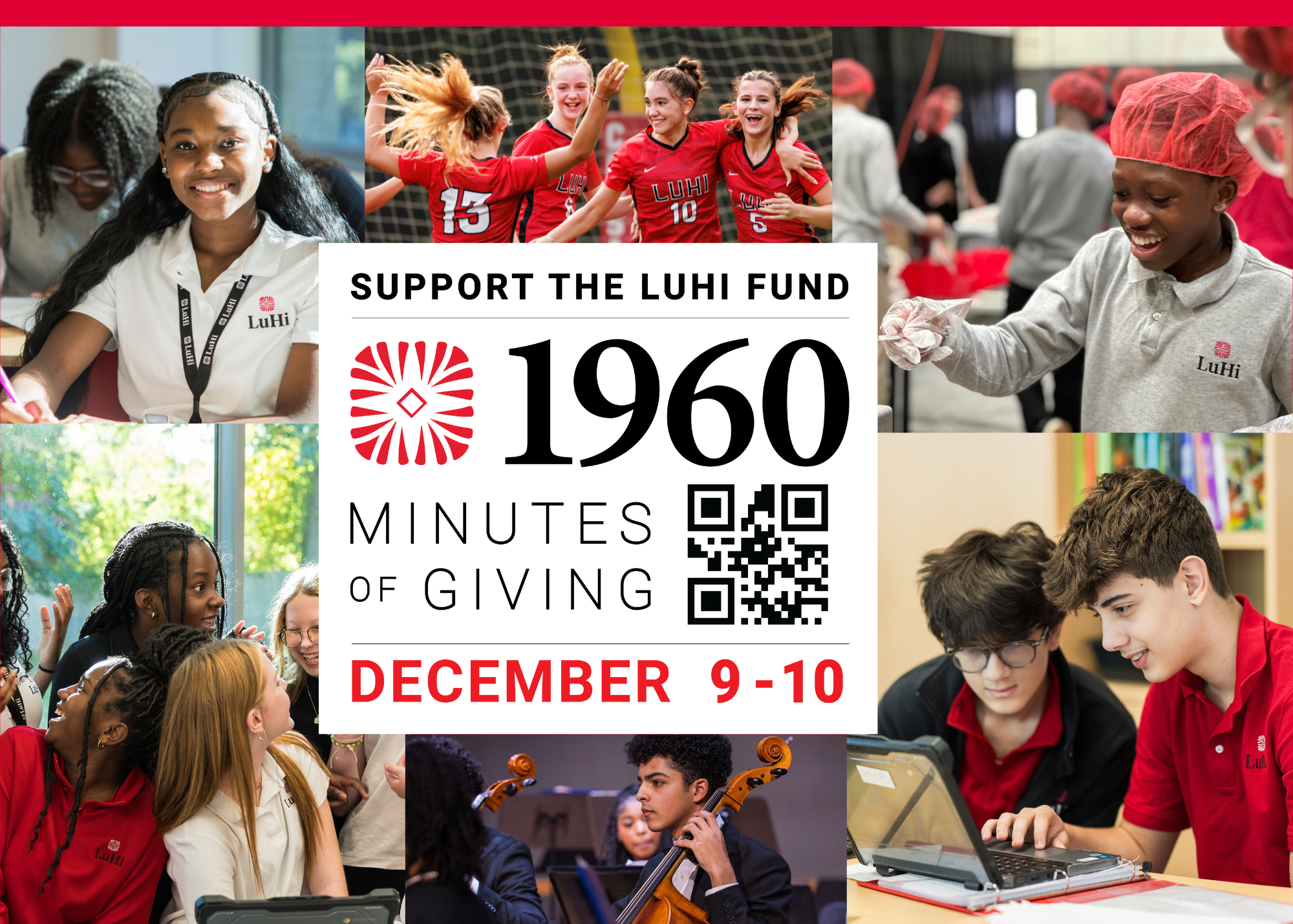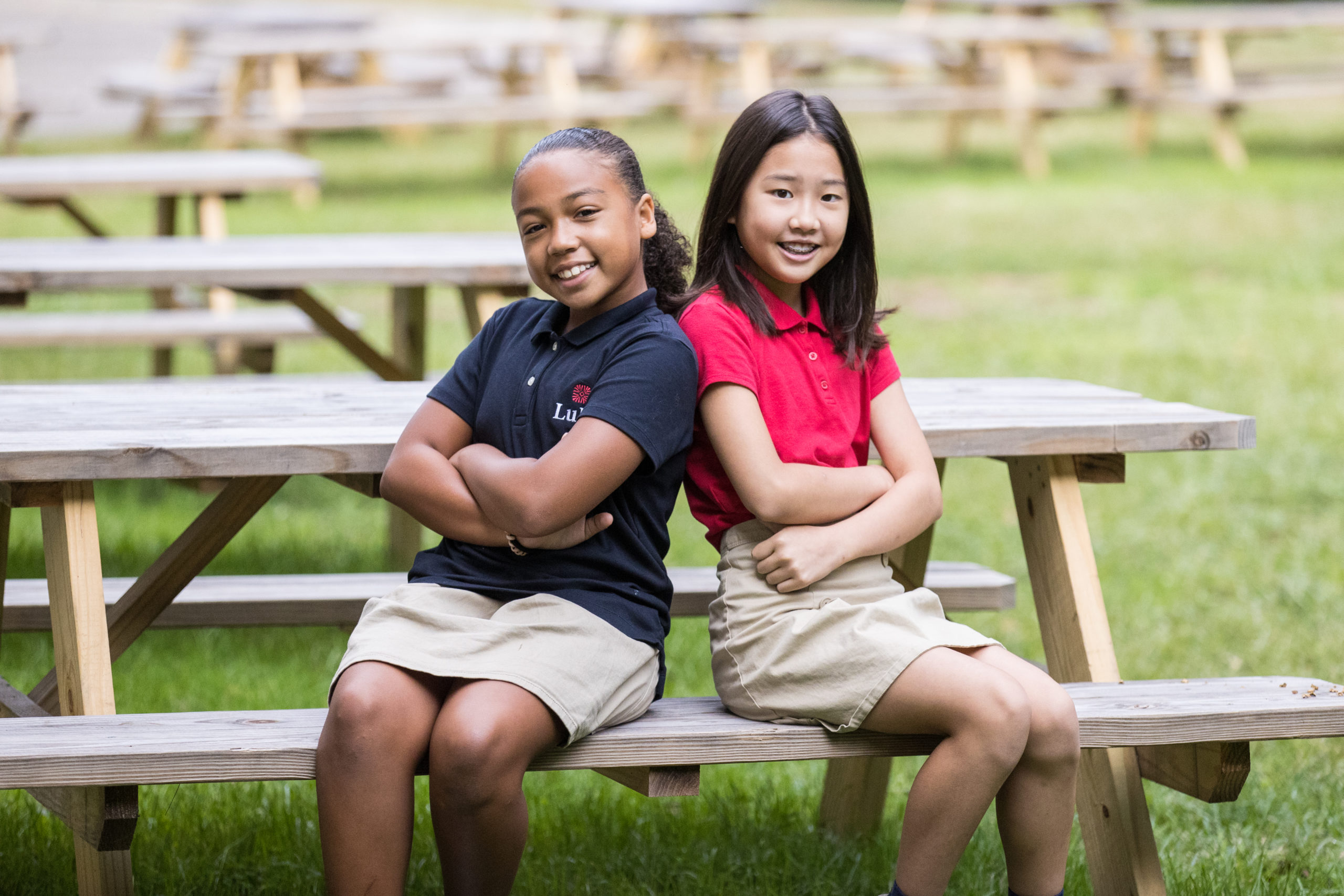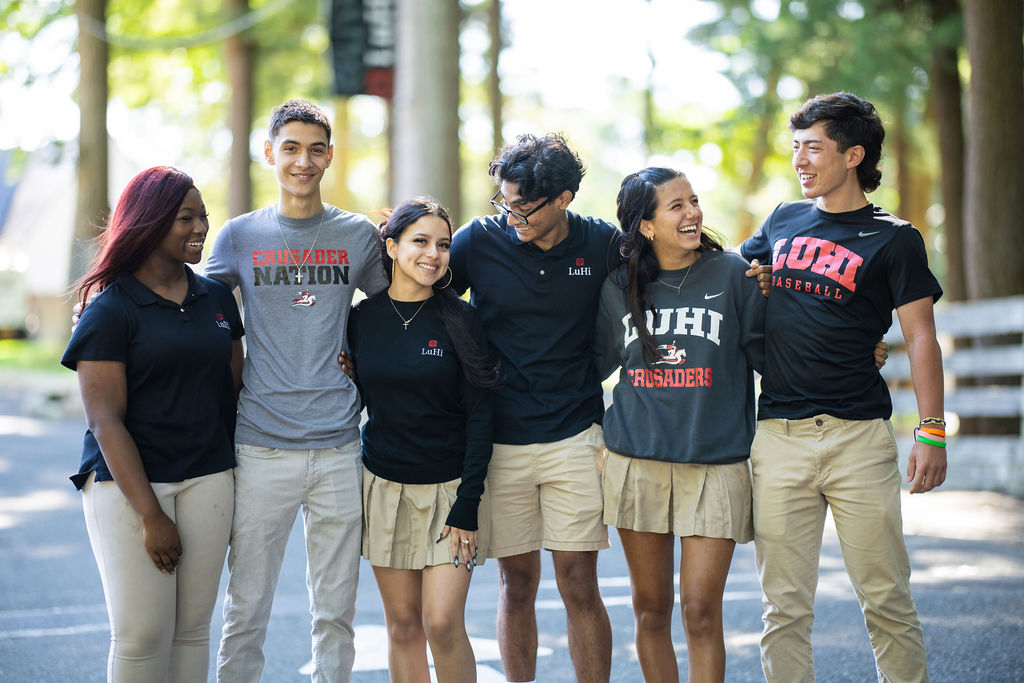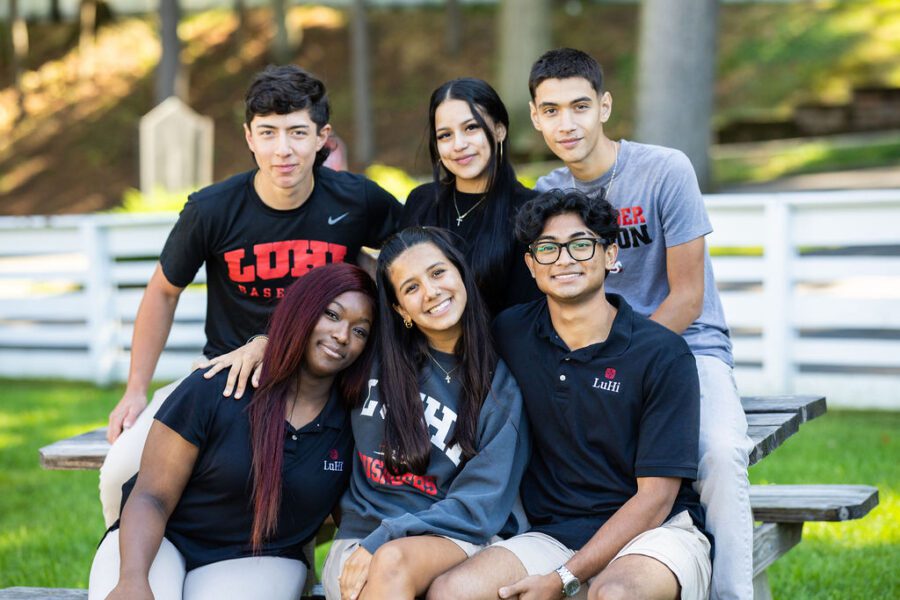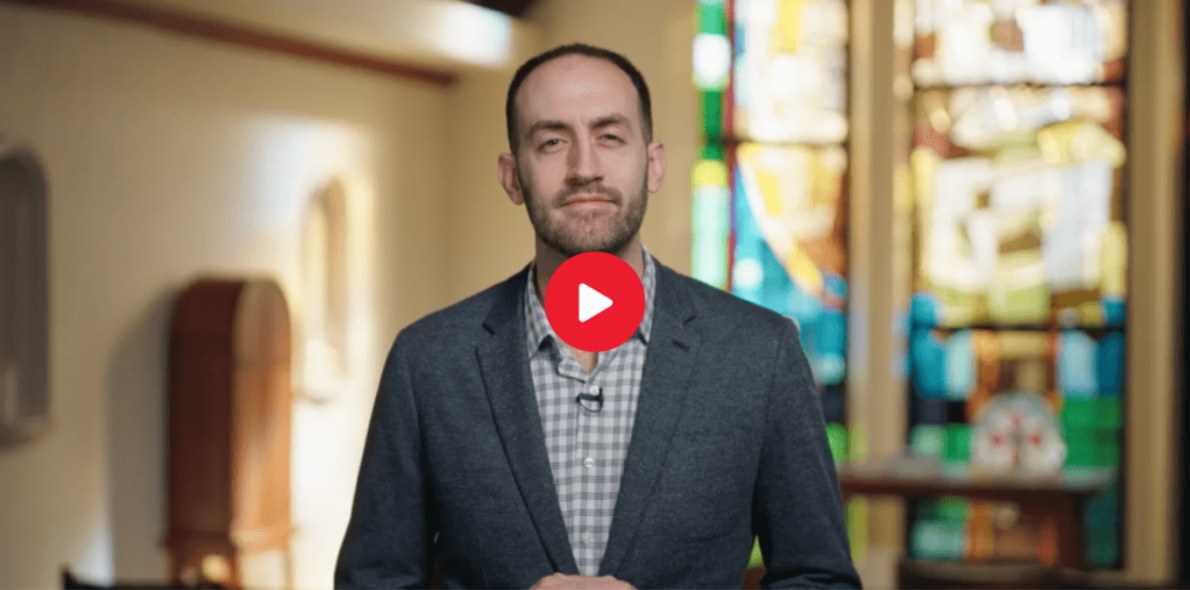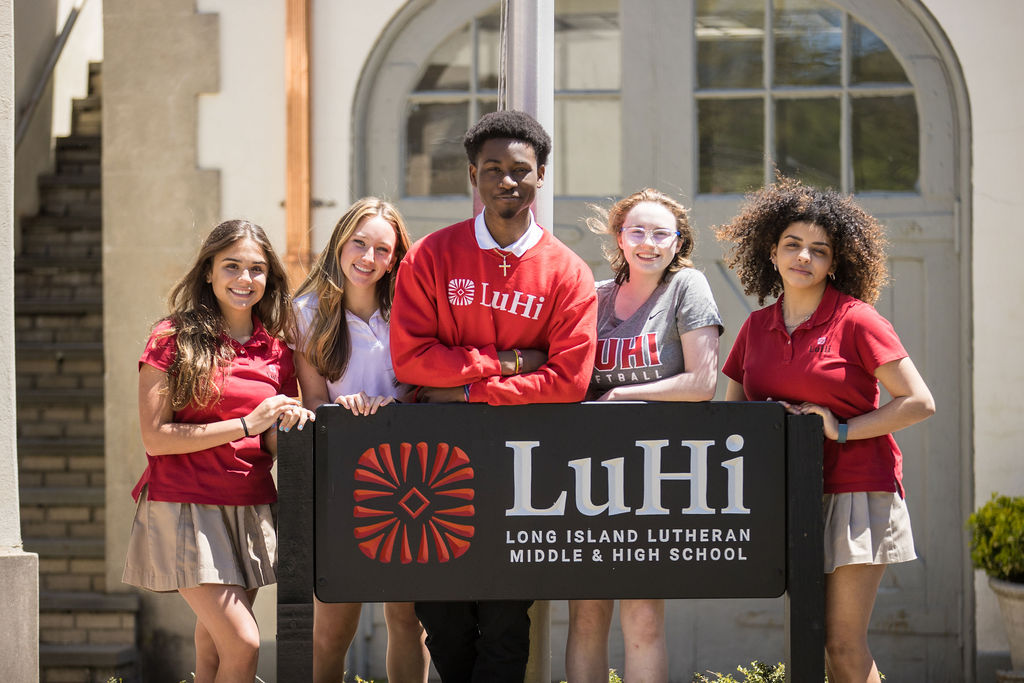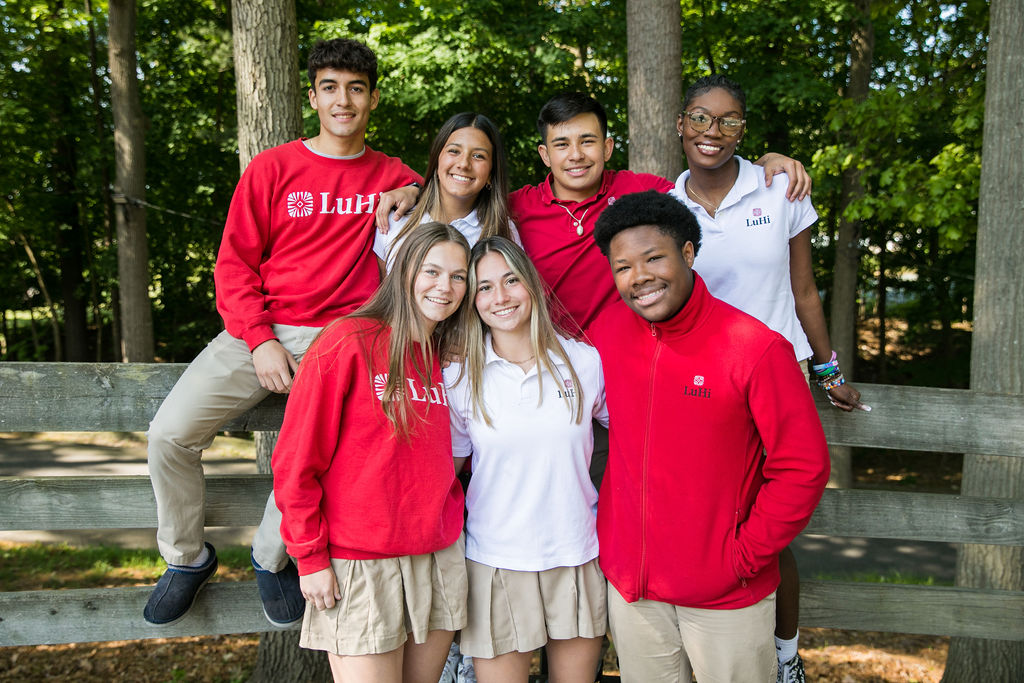Teacher Feature: Mr. Daniel Kielbasa
LuHi’s talented and passionate teaching faculty play key roles in our mission to educate students in body, mind, and spirit. LuHi’s communications interns are taking on the task of interviewing and sharing more about these incredible educators. This week, Reagan ’22 and Arielle ’22 interviewed Mr. Daniel Kielbasa, who teaches in the Social Studies department. Mr. Kielbasa has been a member of the LuHi faculty for the past 11 years, and currently teaches US History, AP US History, and an International Relations elective. Read more about Mr. K below!
What is the best part of teaching here at LuHi?
The best part about teaching at LuHi is the amount of freedom I have in organizing my curriculum. Because we don’t have to race through the material to match up with state exams, we have more opportunities to teach a wider range of topics in a greater number of ways. It is great to spend more time exploring a topic that students are interested in.
Why did you choose to become a teacher?
I always enjoyed being in history classes as far back as I can remember. It seemed like a logical choice to continue exploring my passions for history and to share those passions with others
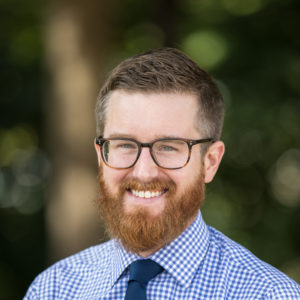
What motivates you to teach each day?
What most motivates me to teach is knowing that our world is desperate for people who possess the skills that historians work with every day. It sounds cheesy but I’d like to think that what I do in my classroom helps students remain informed, engaged, and ready to build a better world for themselves and those around them.
Share a little bit about your International Relations elective, and why you think it is an important class for students to take:
I might be biased, but I think International Relations is one of the most important classes a student can take. The world around us is becoming smaller and smaller, metaphorically speaking, and our future leaders need to understand the complex web of interactions that command the global issues that lie before us. We cover a lot of really cool content that doesn’t really fit into any traditional core class curricula in pursuit of that goal. Even if it’s just scratching the surface in a half-year elective, the International Relations class can lay the foundation for students to continue growing as engaged and conscious global citizens.
Were there other subjects, other than history, that you were interested in teaching? If so, how did you choose history in the end?
As long as I have wanted to teach, I’ve always wanted to teach history. I really liked earth science and biology, but they didn’t come as naturally to me as history did. In graduate school I focused on environmental history and, in recent summers, I’ve been lucky enough to work as a park ranger in Yellowstone National Park where I teach human history and ecology, geology, biology, etc., to thousands of visitors. It’s a pretty cool balance to strike between the subjects
Can you explain a little more about what you do at Yellowstone National Park during the summers?
For four of the last five summers, I have worked as an Interpretive Park Ranger at Old Faithful Visitor Education Center in Yellowstone National Park. My main responsibility is to teach visitors about the park’s resources by leading tours, sharing lectures, answering their questions, and holding informal conversations out-and-about in the park. To that end, I get to do really exciting research out in the field and in the libraries about geysers, animals, geology, and human history so that I can create a wide range of programming for visitors. The goal is that visitors will better understand what they’re seeing so they can understand why it’s important to protect. In many ways, what I do in Yellowstone is the same thing that I do in my classroom. I take arguably complex concepts and make them relatable or relevant. Outside of work hours, I get to explore the 2.2 million acres of the world’s first national park. There’s always something new to see!
What are your hobbies outside of the classroom?
I like to spend as much time outdoors as possible. I’ve been skateboarding for twenty-one years and have become increasingly obsessed with fly-fishing for the last three years. I also enjoy camping, hiking, and reading.
What advice would you give to a student that wanted to pursue teaching as a career?
If a student told me they wanted to be a teacher, I would suggest that they spend some time volunteering or working in a position that puts them in leadership roles before they decide to double-down on teaching. These experiences will help them think about whether they really like teaching or if they just really like a certain subject. There is a whole lot that goes into teaching that has absolutely nothing to do with your subject matter!


